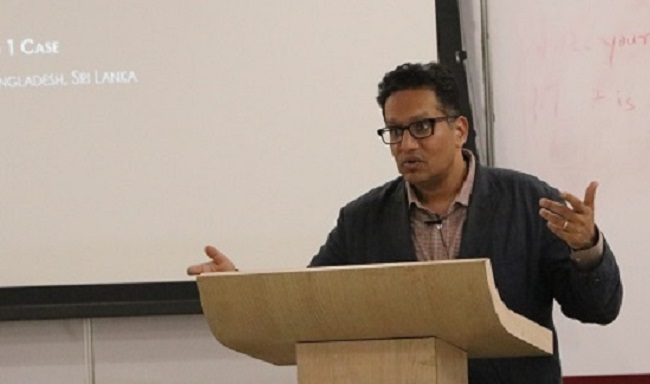Request a speaker
Many in the department are excited to give free public talks in their area of research.

Dr. Neilesh Bose
Download our list of speakers and topics (pdf).
To see the department's areas of research expertise and to inquire about other possible speaking topics and get contact information, please see our faculty profiles.
Please email clio@uvic.ca if you would like more information.
